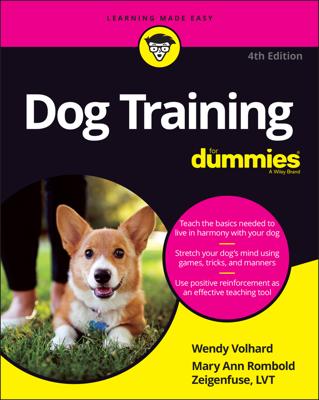The age-old question is “To treat or not to treat?” Training without treats can be done, but it’s not much fun, and in a life filled with daily responsibilities and stress, you may as well enjoy the process of teaching and learning with your puppy.
One of the better treat-training tools is a treat cup, which is easy to make and fun to use: Find an empty plastic container, cut a small hole in the lid, and fill it half full with small treats or your pup’s food. Shake it and give treats until your puppy associates the sound with getting a reward.
Shake, treat, shake, treat, shake, treat . . . soon the sound of the cup will bring her running. Then, you can use this sound to highlight positive moments between you and your puppy and to encourage your pooch’s happy association to important words and people.
Create multiple treat cups and spread them all around — in every room of the house, in your car, and at Grandma’s house. You can never have too many treat cups. However, remember to put them out of your puppy’s reach so that she doesn’t overindulge!
Have children? Make it a family project by decorating your treat cups with construction paper, markers, and stickers.
Use your treat cup to shape your puppy’s happy and willing cooperation. For example, if you want your puppy to sit but she’s jumping up, hold the treat cup out of her reach. When she finally calms down, praise her and give a treat.
Each time a puppy puts something in her mouth — whether it’s something of hers or something she shouldn’t chew — find the treat cup and shake it. Say “Share” as you approach her calmly and exchange a treat for the object in her mouth. Giving a treat doesn’t reward bad behavior, it rewards the positive share response and encourages her to bring you what she’s found, undestroyed.
Yelling at a puppy when she’s doing something wrong just creates tension and stress, leading to more bad behavior. To top that, trying to get her to release something in her mouth conveys prize envy and often leads to catch-me antics or, worse, aggression.

